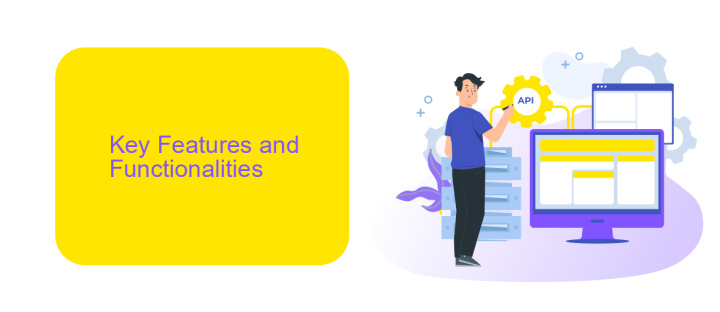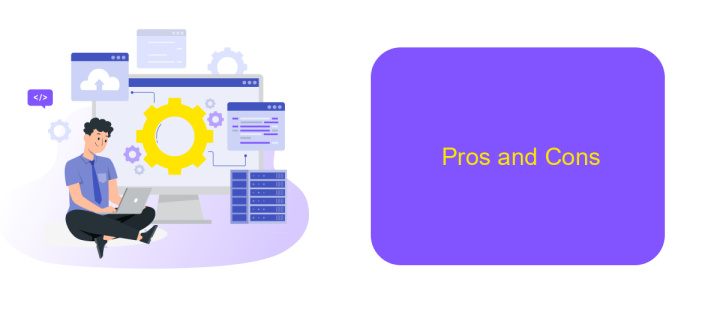Appian Vs Mendix
When evaluating low-code development platforms, Appian and Mendix often come up as top contenders. Both platforms offer robust features that streamline application development, but they cater to different needs and industries. This article delves into a detailed comparison of Appian and Mendix, highlighting their strengths, weaknesses, and ideal use cases to help you make an informed decision.
Introduction
In the ever-evolving landscape of low-code development platforms, Appian and Mendix stand out as two of the most prominent solutions. Both platforms offer robust tools for rapid application development, but they cater to different needs and preferences. Understanding the key differences and strengths of each can help businesses make informed decisions about which platform to adopt.
- Appian: Known for its strong process automation capabilities and enterprise-grade performance.
- Mendix: Praised for its user-friendly interface and extensive collaboration features.
- Integration: Both platforms support integration with various services, including ApiX-Drive for seamless data flow between applications.
Choosing between Appian and Mendix requires a thorough analysis of your business needs, technical requirements, and long-term goals. While Appian excels in process automation and enterprise solutions, Mendix offers a more intuitive and collaborative environment. By leveraging integration services like ApiX-Drive, businesses can enhance the functionality and connectivity of their chosen platform, ensuring a more efficient and cohesive workflow.
Key Features and Functionalities

Appian offers a robust set of features designed for enterprise-level applications, including process automation, case management, and low-code development. Its intuitive drag-and-drop interface allows users to create complex workflows with ease. Appian also excels in integration capabilities, supporting seamless connections with various third-party services, including ApiX-Drive, which helps automate data transfer and streamline business processes.
On the other hand, Mendix is renowned for its rapid application development capabilities, enabling users to build, test, and deploy applications swiftly. It provides a collaborative development environment where business and IT teams can work together effectively. Mendix's extensive library of pre-built templates and components accelerates the development process. Additionally, its integration options are comprehensive, allowing easy connectivity with external systems and services, such as ApiX-Drive, to enhance data synchronization and operational efficiency.
Pricing and Licensing

When comparing Appian and Mendix, pricing and licensing are crucial factors to consider. Both platforms offer flexible pricing models, but they cater to different business needs and scales. Appian provides a subscription-based model with options for cloud and on-premises deployment. Pricing is typically based on the number of users and the complexity of applications being developed, making it suitable for larger enterprises with more extensive requirements.
- Appian: Subscription-based, user and application complexity-based pricing, cloud or on-premises deployment.
- Mendix: Tiered pricing plans, ranging from free community edition to enterprise-level subscriptions, additional costs for advanced features and larger teams.
Mendix, on the other hand, offers a tiered pricing structure that ranges from a free community edition to comprehensive enterprise-level subscriptions. This makes it a versatile option for startups and small businesses as well as large corporations. Both platforms may incur additional costs for integration services, and tools like ApiX-Drive can be beneficial for streamlining these processes, offering seamless connectivity between various applications and systems.
Pros and Cons

When comparing Appian and Mendix, both platforms offer unique advantages and drawbacks. Appian is renowned for its robust process automation capabilities, making it a strong choice for enterprises looking to streamline complex workflows. On the other hand, Mendix excels in rapid application development and is highly appreciated for its user-friendly interface, which allows even non-technical users to build applications efficiently.
However, there are also some limitations to consider. Appian can be more complex to set up and requires a steeper learning curve, which might not be ideal for smaller teams or businesses with limited technical expertise. Meanwhile, Mendix, while easier to use, may not offer the same depth of process automation features as Appian.
- Appian: Strong process automation, robust enterprise features, but complex setup.
- Mendix: User-friendly, rapid development, but limited process automation.
For integration needs, both platforms can benefit from services like ApiX-Drive, which facilitates seamless integration between various applications and systems, enhancing overall functionality and efficiency. Ultimately, the choice between Appian and Mendix will depend on your specific business requirements and technical capabilities.
Comparison Table
When comparing Appian and Mendix, it's essential to consider their core functionalities and user experiences. Appian excels in process automation and case management, providing a robust platform for complex workflows. Its user-friendly interface and extensive integration capabilities, often facilitated by services like ApiX-Drive, make it a versatile choice for enterprises looking to streamline operations. In contrast, Mendix stands out with its rapid application development and deployment features, enabling businesses to build and iterate applications quickly. Its visual development tools and collaborative environment are particularly beneficial for teams aiming to innovate and adapt swiftly.
Another critical aspect is the scalability and flexibility of both platforms. Appian offers strong governance and security features, making it suitable for large-scale implementations in regulated industries. Mendix, on the other hand, provides flexibility through its open architecture and extensive marketplace of pre-built components, which can be easily integrated using tools like ApiX-Drive. Ultimately, the choice between Appian and Mendix depends on the specific needs of the organization, whether it's prioritizing process optimization with Appian or leveraging Mendix's rapid development capabilities for digital transformation.
FAQ
What are the main differences between Appian and Mendix?
Which platform is more suitable for large-scale enterprise applications?
Can both platforms integrate with existing systems?
What are the typical use cases for Appian and Mendix?
Are there services available to help implement automation and integrations for these platforms?
Apix-Drive will help optimize business processes, save you from a lot of routine tasks and unnecessary costs for automation, attracting additional specialists. Try setting up a free test connection with ApiX-Drive and see for yourself. Now you have to think about where to invest the freed time and money!

